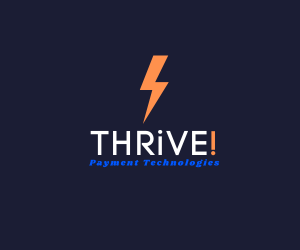Branding - Purpose, Mission, Vision, Values
Branding 101: Creating your purpose, mission, vision, and values statement for your company
Branding is more than coming up with a cool name for your business, picking colors and finding the right font. Names, colors, and fonts are certainly important, but they are only part of a process of defining, refining and establishing your company brand. In a crowded marketplace with millions of ideas, companies, and brands vying for your customer’s attention, the importance of branding may be more essential now than ever! Investing in your company’s branding and doing it right can help set your company, product, or service apart from your competitors and establish you as a leader in your industry.
When starting the process of branding or re-branding your company or product, we recommend exploring and clearly defining the core of who you are as a company before you pick a name, create a logo, or choose colors or fonts. Some branding agencies may call it your brand heart, brand essence, brand core, or your company’s "why". Whatever term you prefer, the concepts are important because it essentially lays the foundation for future success, attracts the right employees and customers to do business with you, and guides your strategy and business communications both internally and externally. Do I have your attention yet? I hope so, let’s dive in.
Developing your brand core starts with
defining your company’s purpose - why do you exist/what you are here for. Your brand’s purpose has the power to motivate employees, attract top talent, and grow your company from a startup to a success story. You need an overarching purpose that is bigger than you or any one person. People want to be a part of an organization or business making a difference and contributing to a better future for their employees and communities and even the world. Take for example these top brands and how they define their company purpose:
Chobani - “To make better food for more people”
Ikea- “to create a better everyday life for the many people”
Lego - “To inspire and develop the builders of tomorrow”
Forbes says it like this: "A good purpose statement needs to be aspirational but not vague. It needs to be precise but not limiting, allowing room for a company to grow."
Don't Panic says it like this, "A brand purpose is essentially a brand's reason for being beyond making money... To clarify this, a brand purpose is about product-led initiatives which strive to simultaneously achieve business and benefit society."
Vision
Once you've given thought to documenting your purpose statement, understanding and sharing a vision for the future - what you want to create together is the next step. This is the
big hairy audacious goal you have for your company - the big picture grandiose problem you want to solve or future you want to create. Hubspot defines a vision statement as, “a brand looking toward the future and saying what it hopes to achieve through its mission statement. This is more conceptual, as it’s a glimpse into what the brand can become in the eyes of the consumer and the value it will bring in longevity.”
Here are some examples:
Nike -“Bring inspiration and innovation to every athlete* in the world. (*If you have a body, you are an athlete.)”
McDonald’s -
“To be the best quick service restaurant experience. Being the best means providing outstanding quality, service, cleanliness and value, so that we make every customer in every restaurant smile.”
Amazon -
“We strive to offer our customers the lowest possible prices, the best available selection and the utmost convenience.”
Mission
Your mission statement puts legs to your vision and shares how you will create the future and fulfill the vision you’ve developed.
Hubspot says it like this, "Mission statements describe the current purpose a company serves. The company's function, target audience, and key offerings are elements that are often mentioned in a mission statement."
Here are some examples,
Patagonia: We’re in business to save our home planet.
American Express: Become essential to our customers by providing differentiated products and services to help them achieve their aspirations.
Warby Parker: To offer designer eye wear at a revolutionary price while leading the way for socially conscious businesses.
Values
Lastly, your values - these are the principles and beliefs that guide your behavior as a company. The truth is these are strong ideals to live up to, but delivering on your commitment builds brand equity, company value, attracts the right people, and guides your company into the future so that even if the founder is no longer running the company, you have the recipe and vision for a successful company for generations to come. Combining these elements into your brand strategy and doing it consistently creates brand trust and people do business with brands and companies they like and trust.
Here are a couple examples of company values-
Hyatt Hotels
We Care For People So They Can Be Their Best:
Caring For Our Communities:
We Embrace Everyone
BigCommerce
Customers first
Team on a mission
Think big
Make a difference every day
Column Five says it like this, “to build a strong brand, you have to deliver a positive and consistent emotional experience. The more you do this, the more people come to rely on you and, most importantly, trust you. That trust is why we all return to our favorite brands over and over.”
To recap step one in the branding or re-branding process:
- Purpose: Why your company exists outside of making money - what overarching goals or problems are you trying to achieve?
- Vision: What's your big hairy audacious goal for the future?
- Mission: How will you accomplish the vision and purpose for your company?
- Values: What principles will you follow to implement your mission, vision, and purpose?
Next we’ll look at your Brand Messaging - how you talk about your brand and the message you want to communicate.
















